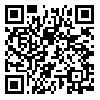Sat, Apr 20, 2024
| فارسی
Volume 21, Issue 4 (Winter 2020)
Advances in Cognitive Sciences 2020, 21(4): 94-102 |
Back to browse issues page
Download citation:
BibTeX | RIS | EndNote | Medlars | ProCite | Reference Manager | RefWorks
Send citation to:



BibTeX | RIS | EndNote | Medlars | ProCite | Reference Manager | RefWorks
Send citation to:
Esteki M, Fadaei Vatan Z, Ghanbari Panah A, Kouchakentezar R. Effectiveness of mindfulness-based cognitive therapy on locus of control and achievement motivation in students with learning problems. Advances in Cognitive Sciences 2020; 21 (4) :94-102
URL: http://icssjournal.ir/article-1-1071-en.html
URL: http://icssjournal.ir/article-1-1071-en.html
1- Assistant Professor of Department of Psychology, Faculty of Psychology, Islamic Azad University, Central Branch, Tehran, Iran
2- . PhD Student of Psychology and Education of Children with Special Needs, Islamic Azad University, Central Branch, Tehran, Iran
2- . PhD Student of Psychology and Education of Children with Special Needs, Islamic Azad University, Central Branch, Tehran, Iran
Abstract: (4333 Views)
Introduction: The present study aimed at studying the effect of mindfulness-based cognitive therapy on the locus of control and achievement motivation in students with learning problems.
Methods: This research method is a semi-experimental with pretest-posttest and control group design. The population was all Tehran's first restrict middle school girl students. Research samples consisted of 30 students who selected to participate in the study according to the convenience judgmental sampling method. After taking identical test of Rotter's Locus of Control Scale, Herman's achievement motivation questionnaire (HAMQ), and Colorado Learning Difficulties Questionnaire (CLDQ), Participants were then divided randomly into experimental and control groups (each group=15). The eexperimental group received mindfulness-based cognitive therapy of 20 sessions, but control group did not receive any intervention. Follow-up assessment performed three months after ending sessions. Data was analyzed through covariance analysis (ANCOVA).
Results: Research findings indicated that mindfulness-based cognitive therapy changes the locus of control from external to internal. mindfulness-based cognitive therapy is an effective method to enhance internal locus of control and self-esteem. Besides, findings indicated that Mindfulness-Based Cognitive Therapy increases achievement motivation. This intervention method was also an effective method to enhance achievement motivation.
Conclusion: Research results suggest that trainers, teachers, and psychologists administer these intervention methods for personal and educational improvement in the learning of disabled students.
Methods: This research method is a semi-experimental with pretest-posttest and control group design. The population was all Tehran's first restrict middle school girl students. Research samples consisted of 30 students who selected to participate in the study according to the convenience judgmental sampling method. After taking identical test of Rotter's Locus of Control Scale, Herman's achievement motivation questionnaire (HAMQ), and Colorado Learning Difficulties Questionnaire (CLDQ), Participants were then divided randomly into experimental and control groups (each group=15). The eexperimental group received mindfulness-based cognitive therapy of 20 sessions, but control group did not receive any intervention. Follow-up assessment performed three months after ending sessions. Data was analyzed through covariance analysis (ANCOVA).
Results: Research findings indicated that mindfulness-based cognitive therapy changes the locus of control from external to internal. mindfulness-based cognitive therapy is an effective method to enhance internal locus of control and self-esteem. Besides, findings indicated that Mindfulness-Based Cognitive Therapy increases achievement motivation. This intervention method was also an effective method to enhance achievement motivation.
Conclusion: Research results suggest that trainers, teachers, and psychologists administer these intervention methods for personal and educational improvement in the learning of disabled students.
Keywords: Mindfulness-Based Cognitive Therapy, Achievement motivation, Locus of control, Learning problems
Received: 2019/05/17 | Accepted: 2020/01/13 | Published: 2020/03/18
Send email to the article author
| Rights and permissions | |
 |
This work is licensed under a Creative Commons Attribution-NonCommercial 4.0 International License. |






